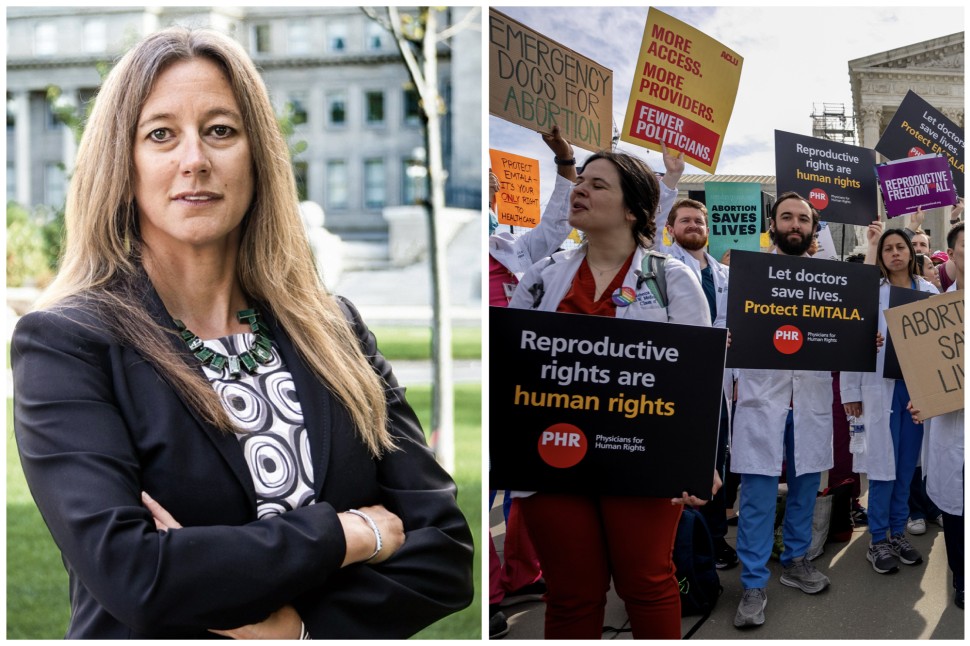
A family physician in Idaho testified on Tuesday that a woman experiencing severe bleeding from a miscarriage was denied admission to a hospital until her fourth emergency room visit in one week, highlighting the chilling effect of the state's strict abortion bans on medical care.
Dr. Julie Lyons, a plaintiff in an ongoing lawsuit against Idaho's abortion laws, recounted the ordeal of her 14-week pregnant patient, who suffered a subchorionic hemorrhage — a condition where the placenta detaches from the uterus, ABC News reported.
Despite clear signs the pregnancy was unviable, the patient was not admitted due to confusion and fear among medical staff about potential legal repercussions under the state's abortion ban.
"My colleagues are so scared and confused to even mention the word [abortion]. It's like a hot potato — pass the patient around and hopefully something will happen and declare itself," Lyons testified, according to ABC News.
"This patient had developed a massive subchorionic hemorrhage — that's where the placenta rips off the side of the uterus — and she had developed this earlier in the week, and had been into the emergency room several times," Lyons told the court, adding that blood tests showed the patient becoming increasingly anemic over three separate visits to the ER.
On the woman's fourth visit, Lyons, who was on call, decided to break hospital policy barring admissions for patients less than 20 weeks pregnant.
"I just couldn't send her home again and hope for the best," Lyons said. The patient was admitted to the labor and delivery floor, where she miscarried a few hours later, suffered significant hemorrhaging, and required a blood transfusion.
Idaho's total abortion ban allows exceptions only to prevent the death of the pregnant person, alongside a six-week gestational ban prohibiting abortions once fetal cardiac activity is detected. Critics argue these laws have created widespread confusion among healthcare providers, delaying or denying critical care even in cases of medical emergencies.
The lawsuit, brought by four women and two physicians, aims to challenge these restrictions. Plaintiffs have shared harrowing accounts of being denied care for fatal fetal anomalies or having to transfer patients out of state for abortions.
The case is ongoing.
Originally published by Latin Times.




